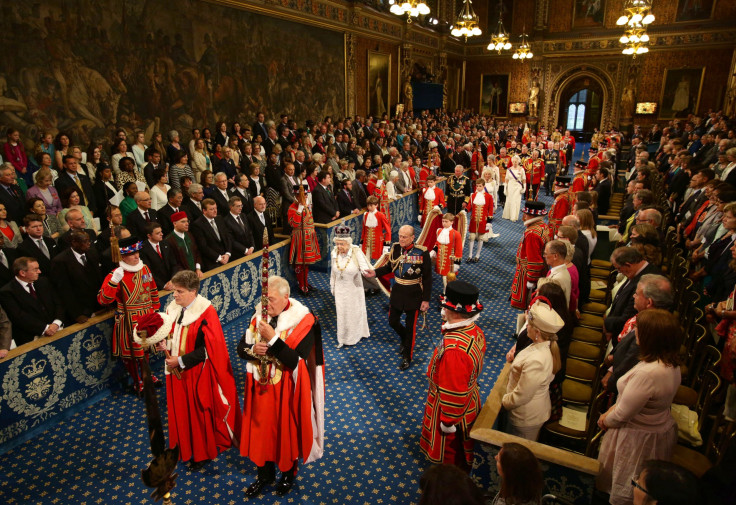Queen's Speech Live Stream 2016: How To Watch The State Opening Of Parliament

The newly 90-year-old Queen Elizabeth II will make her annual appearance at the State Opening of Parliament Wednesday to lay out the British government's plans for the next year. The Queen's Speech, as the event is called, formally kicks off the parliamentary session at Westminster.
The monarch's words will not be her own; they are penned for her by the government, currently in the hands of the Conservative Party, led by Prime Minister David Cameron. After she reads the speech out loud, members of both houses of Parliament will spend the next few days debating it, according to the palace's explainer.
The State Opening of Parliament, an elaborate ceremonial occasion, is set to begin at 11:15 a.m. local time, or 6:15 a.m. EDT. Watch a live stream of the event here or see updates on a live blog here.
There's a lot of speculation around which topics the speech will address Wednesday, though leaks have indicated the queen could touch on increasing university tuition fees, giving insurance to driverless cars, reforming the prison system, changing adoption laws and curbing extremism, the Mirror reported.
Social Market Foundation director Emran Mian wrote in the New Statesman that the government has been moving relatively slowly recently, so "this Queen’s Speech does need to step up the pace, or a whole legislative session and whole year will be lost."
But a major political event looms on the United Kingdom's calendar: the vote on whether to leave the European Union. Britons will vote on the "Brexit" referendum June 23 and, according to former Commons leader Andrew Lansley, the result, if yes, could derail the legislative session.
“If there were to be a Brexit vote … in the latter part of this Parliament we would be completely absorbed with managing the consequences of that, which would be monstrous to think about,” Lansley told the Guardian. “It would really get in the way of almost anything else in Parliament for a substantial period of time.”
© Copyright IBTimes 2025. All rights reserved.





















